London-based pianist Steven Wray has charted a somewhat unusual path across a broad repertoire and in a wide variety of styles incorporating solo and chamber music in both classical and contemporary genres. During an international career over the past 25 years he has promoted lesser-known works alongside more standard repertoire in often unusual and thought-provoking programmes.
Steven Wray read music at Oxford. After university he studied privately with Dorothea Law and Ruth Nye whilst also gaining valuable recital experience through various young artists’ platforms. In particular, a recital in York in 1983 of works by Chopin, Debussy and the Liszt B minor sonata was praised for its “highly unusual poetic feeling and interpretation” and a “refinement of dynamic variety which is rare” (Yorkshire Post). Around the same time encouraging words from the eminent pianist Louis Kentner at a Liszt Society event in London were followed by an invitation to join Yehudi Menuhin's Live Music Now! which included a foyer recital at the Barbican Centre.
At the suggestion of the Austrian-born pianist Dorothea Law and with the help of bursaries arranged through the Austrian Cultural Institute in London, he participated in the masterclasses of Professor Hans Graf at the International Summer Academy at the Salzburg Mozarteum. He later moved to Vienna for a period where he also enrolled in the advanced chamber music class at the Hochschule in Vienna, on occasion collaborating with students being coached by individual members of the Alban Berg Quartet and Haydn Trio. In solo playing he worked with both Carmen Graf-Adnet and Hans Graf, and also played to Professor Paul Badura-Skoda who particularly commended his Bach playing.
Besides the classical repertoire, throughout his career Steven Wray has taken a keen interest in twentieth century and contemporary music, and it was in this field that he made his solo début at London’s South Bank Centre in the prestigious Park Lane Group Young Artists Series in 1988. There were several fine notices including one from Stephen Pettitt of The Times who drew particular attention to “an impressive performance of Judith Weir’s formidably difficult An mein Klavier”, while Paul Driver in the Financial Times enthused about an “almost expressionistically flamboyant” performance of Robert Sherlaw Johnson’s Asterogenesis, and Meirion Bowen commented favourably on his Tippett interpretation. That Purcell Room recital also included the UK premiere of Somei Satoh’s Incarnation II — with electro-acoustic composer Javier Alvarez acting as sound technician. Around the same time he performed new music in Vienna with ENSEMBLE 9 and conductor Yuki Morimoto in works by American and Japanese minimalist composers.
He has collaborated over past years with a number of composers and has received several dedications. In particular he has has worked closely with Andrew Keeling and has given quite a number of premieres of his music in concerts at St John’s Smith Square, St James Piccadilly, St Martin-in-the-Fields, the Warehouse Waterloo, Blackheath Halls, and a CD launch at the Guildhall School of Music and Drama. Other premieres include works by Czech composer Petr Pokorny both in concert and on disc and by Wilfred Josephs for his 70th birthday celebrations at the Purcell Room.
His orchestral repertoire includes concertos by Mozart, Beethoven, Liszt, Brahms, Grieg and Saint-Saens and he has performed with a number of orchestras in Europe and across the UK. Appearances in a series of subscription concerts in the Czech Republic playing Beethoven concertos with the South Bohemian Chamber Philharmonic Orchestra in the 1990s were a particular highlight, coming at a time when he was performing a lot of chamber music in the region together with solo recitals and festival appearances.
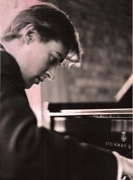
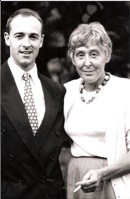

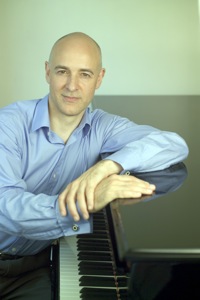

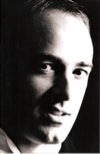
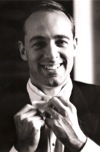



During the period of heady optimism in central Europe as a result of political changes post-1989, Steven Wray participated in the ‘rediscovery’ of a number of composers silenced during the terrible oppression of 1938-45 and its bleak aftermath. As a result of being invited by festival director and composer, Petr Pokorny, to perform in Prague’s Musica Iudaica festival in 1993, he was among the very first to track down, perform and record works by Viktor Ullmann (a pupil of Schoenberg and assistant of Zemlinsky) and Ervin Schulhoff. His Czech Radio recording of Ullmann’s Fourth Sonata was featured in Gaby Flatow’s historical documentary Nicht bloß klagend an Babylons Flüßen for German radio (Sender Freies Berlin) along with an interview. Other contributors included the renowned bass baritone and holocaust survivor, Karel Berman, the conductor Gerd Albrecht and others.
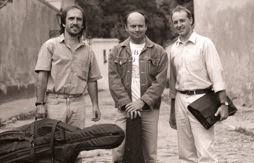
In chamber music he has worked with instrumentalists from many different countries including violinists Tomas Tulacek, Maria Ingolfsdottir, Marina Marsden, violist Cathy Stevens, and cellists Jaroslav Ondracek, Nitzan Laster, Jonathan Ayling and Janet Coles. The formation of a duo with violinist Tomas Tulacek occurred as a result of last-minute availability for a concert tour in the Middle East. It led to many further concerts during the 1990s including appearances in the capitals Vienna, Prague, Ljubljana, Paris, Jerusalem and many other cultural centres, as well as London and throughout the UK. For the Schubert bicentenary he collaborated with the baritone Petr Matuszek in a concert tour for the Schubert Society of the Czech Republic.
Duo with violinist Tomas Tulacek
Trio with cellist Jaroslav Ondracek of the Prague Chamber Orchestra and with violinist Tomas Tulacek, Prague 1992
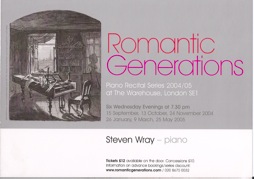
More recently his 2004-05 series of London recitals at The Warehouse, Waterloo demonstrated a breadth of engagement across the classical repertoire, and was warmly described as “highly enterprising and imaginative” by Jeremy Siepmann, editor, PIANO magazine. Tracing the line from eighteenth century Empfindsamkeit to early twentieth century Expressionism, the concerts (under the title Romantic Generations) scaled a number of significant peaks of the literature including Beethoven's Appassionata and Hammerklavier sonatas, the Schumann F sharp minor and Liszt B minor sonatas, Berg’s Opus 1, Skryabin’s Ninth and Brahms' Handel Variations.
At the invitation of the composer, Steven Wray recently recorded Andrew Keeling’s solo piano music. The cycle Blue Dawn has already been issued on the Burning Shed label. Other pieces will be released in 2009 in an eclectic mix of old and new music featuring early English masters including Steven Wray's own transcriptions of pieces by Purcell and the early sixteenth century composer John Taverner.
Solo recital series in London, 2004-05